What do you think?
Rate this book


384 pages, Hardcover
First published June 30, 2015
" كان هناك ولم يكن هناك تحت الشمس الحارقة ... وبالعبارة المعادلة ل (كان يا ما كان) لبدء الحكي بالأفغانية "
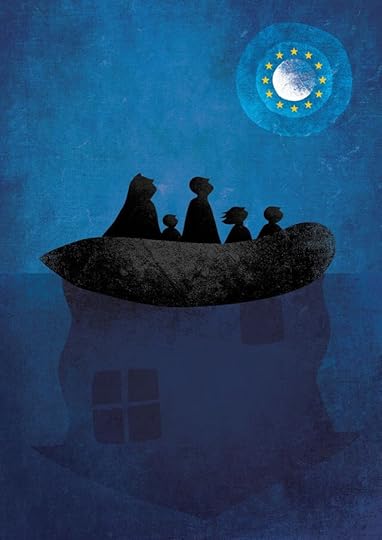


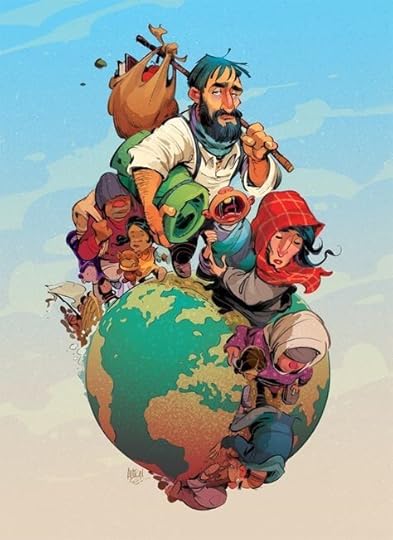
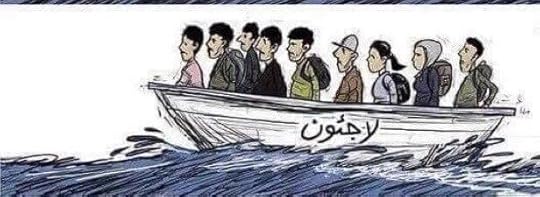
" لن يمكنه معرفة كل ما يجول في خاطرها بأفضل مما يمكنها هي تخمين ما بداخله. هناك أشياء يقولها أحدهما للآخر بصوت عال، وأشياء يهمسون بها بوجه يختلج ، وأشياء يسكتان عنها تماماً. الأم والابن منفصلان على أساس السن والدور والرغبة في حماية أحدهما الآخر. لكن الهدف من سكوتهما ، مع أنهما لن يعترفا بهذا أبداً، كان لحماية نفسيهما وعلاقتهما. أشياء لايرغب أحدهما في معرفتها عن الآخر حتى وإن أمكنه ذلك. "
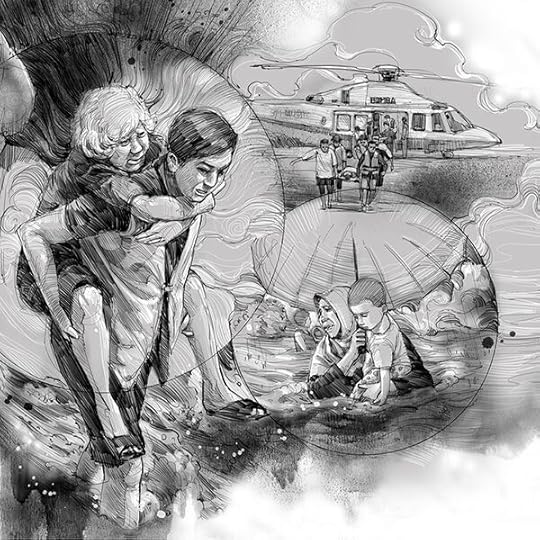
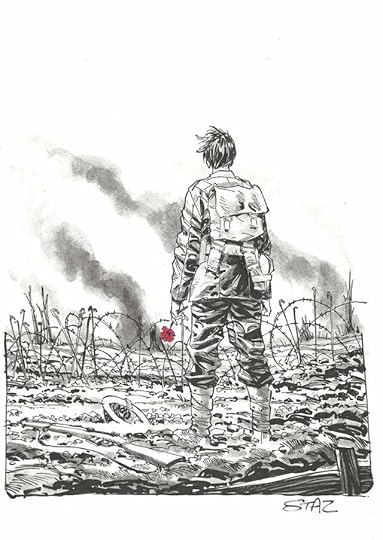
" يمكننا صنع حياة لأنفسنا في أى بلد، كل ما نحتاج إليه فرصة فقط، مكاناً ما في العالم، لابد أن في العالم مكاناً يرحبون بنا فيه كأقارب طالت غيبتهم، ولا يرجموننا بالحجارة كثعابين في الحديقة "

“The United Nations High Commissioner for Refugees estimates that roughly half of all refugees are under the age of eighteen. Alarmingly, the crisis has continued to grow while the world’s sympathies have ebbed and flowed. We cry when we see a photograph of three-year-old Alan Kurdi’s lifeless body, his family’s hopes for a new life taken by the rough waters they were trying to cross to safety. We make dinner while the news anchor reports another fifty men, women, and children were lost in the Mediterranean to a capsized boat. We change the channel, afraid our first grader’s innocence will be spoiled by graphic images. We breathe a sigh of relief when pictures of rescue volunteers handing out warm blankets appear on our Facebook scroll. Our minds are on work deadlines while NPR reports on the violence in Afghanistan, Syria, and Somalia that continues to drive desperate people to risk their lives. It feels hopeless. It feels like this is no longer ‘news.’ At some point, the ongoing desperation of millions has become background noise.”—Nadia Hashimi
"Fereiba-jan. In the darkness, when you cannot see the ground under your feet and when your fingers touch nothing but night, you are not alone. I will stay with you as moonlight stays on water.”History has so many tales to tell. This one should be heard. And Nadia Hashimi should keep on writing. Historical fiction is her forté, I would say.
“Even your brother has found his way, without obligation to anyone. I do not know who is to blame. He has the body of a horse but the mind of an ass.”
KokoGul’s heart was a fixed space, a container with finite dimensions, and every inch of it had been spoken for by my sisters and my father. I stared at her and through her. Once again and even more unexpectedly this time, I was motherless.
Fereiba: I imagined my home without me—my sisters laughing in the hallways, my brother at my father’s side, and KokoGul, hands on her hips, proudly presiding over it all.
Why did my mother have to die?
Nothing exceptional happened on this afternoon. It was a few words, not much different from any other day but it was a private, cataclysmic moment when I saw the woman before me through unclouded eyes.
“They’re coming back sooner than I expected,” KokoGul said, thinking out loud. “But I’ll find a way to keep them baited.”
KokoGul made her own mouth water.
I saw the peaks of a hundred mountains rising before me.
Mother. All my life I had called KokoGul by this radiant and hopeful name, wishing for the touch of lamb’s wool on my cheek and too often getting nothing but a cool draft.

